Introduction
It’s very easy in today’s world to overlook the connection between our food and our feelings. We tend to focus more on satisfying our immediate desires than nurturing both the body and mind for long-term wellness. This holistic eating approach is called the ” soul diet ” and it focuses on food as medicine, not only fuel, for your body.
Making mindful and intentional food choices can help you balance your health, boost your energy levels, and improve your emotional wellbeing. This post will explore the Soul Diet and show you how to implement it in order to change your life.

The Problem: The Disconnect Between Diet and Well-being
We often choose to eat the foods that are convenient and ignore their long-term impact on our health. Modern diets are dominated by processed foods, sugar and fats that can be unhealthy. These contribute to mental and physical health issues, weight gain and fatigue. The lack of mindfulness in eating can lead to emotional and physical imbalances.
The Agitation: Impact of Imbalanced Diets
Poor diet affects your mental health and your emotions. Deficits in nutrients essential to the brain can cause mental fatigue, depression, and anxiety. We feel more disconnected from ourselves when we eat unhealthy food. This leads to stress, fatigue, lack of concentration, and chronic energy slumps.
What is the Soul Diet?
It is important to understand that the “soul” diet does not only refer to what we eat but also how we eat. The “soul diet” is a holistic, mindful approach to eating that feeds your body as well as your mind. Making conscious decisions that promote your health and energy and bring your body and mind into harmony is the goal.

General Guidelines for the Soul Diet:
- Consume whole, nutrient-dense foods: Concentrate on fruits, vegetables and lean protein, as well as healthy fats. They are rich in vitamins and minerals, which support physical and mental health.
- Eat mindfully: Enjoy your meal at your own pace. Focus on your eating and avoid distractions such as TV and phones.
- Keep your body hydrated throughout the day: At least eight cups of water per day is recommended.
- Reduce your intake of processed foods and sugar: Sugar, unhealthy fats, and refined foods are all bad for you. They can affect both your emotional and physical well-being. Reduce their consumption.
- Include Movement and Rest: A soul diet includes more than just food. It also involves regular exercise, enough sleep and techniques for stress management like yoga or meditation.
Soul Diet 7-Day Plan
Day 1: Cleanse and Energize
- Breakfast: A green smoothie made with bananas, kale and avocados, as well as chia seed, unsweetened almonds milk, and spinach.
- Lunch: Quinoa Salad with Mixed Greens, Chickpeas and Avocado.
- Snack: A handful of almonds with a small piece of apple.
- Dinner: Grilled Salmon along with Steamed Broccoli and Roasted Sweet Potatoes
- Drinks: Lemon water or herbal tea.
Drink a glass water mixed with lemon to start your day. This helps to detoxify the body and jump-start metabolism.

Day 2: Nourish and Balance
- Breakfast: Oats with blueberries and honey drizzled over them.
- Lunch: Grilled Chicken Breast, Mixed Greens, Roasted Carrots and Quinoa, with a lemon-based dressing.
- Snack: carrot and cucumber sticks with Hummus
- Dinner: Stir-fried bok choy with bell peppers and broccoli served over brown rice.
- Drinks: green tea
Attention to hunger signals from your body. You should only eat until you are fully satisfied. Do not overeat.
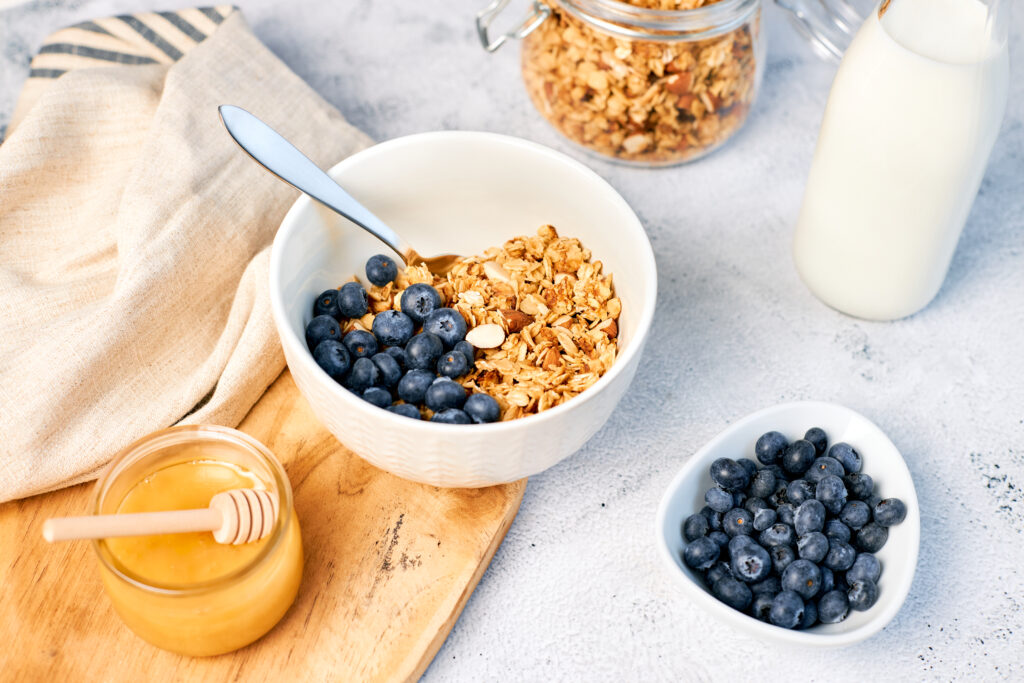
Day 3: Embrace Plant-Based Nourishment
- Breakfast: Make a chia pudding with almond milk unsweetened, chia seed, and some kiwi slices.
- Lunch: Lentil Soup with Spinach, Tomatoes, Garlic, and Whole-Grain Bread.
- Snack : A handful of mixed nuts with a pear.
- Dinner: Grilled vegetables platter (zucchini eggplant bell peppers), with a side dish of quinoa sauce and tahini.
- Drinks: herbal tea
Eat without distractions and focus on your taste buds. After eating, always pay attention to how you feel.
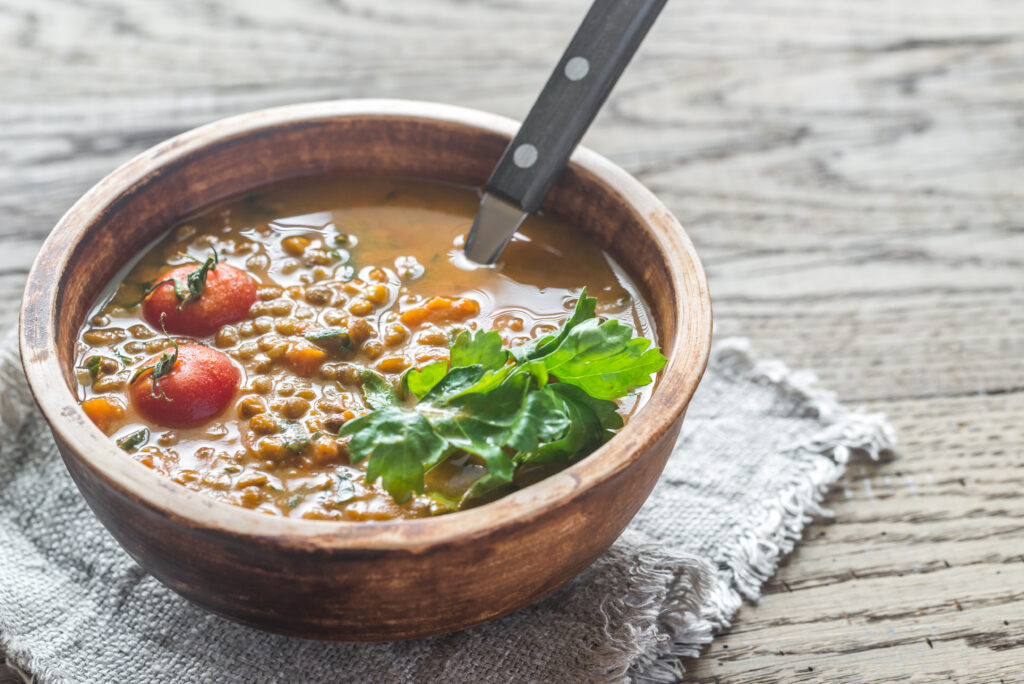
Day 4: Deepen Your Connection to Food
- Breakfast: Smoothie Bowl with strawberries, acai and almond butter.
- Lunch: Salad of mixed greens with avocado, cucumber and olive oil dressing.
- Snack : Enjoy a snack of a small handful pumpkin seeds with an orange.
- Dinner: Roasted Brussels sprouts with baked chicken thighs.
- Drinks: Water with lemon and cucumber.
Before each meal, take a few breaths to center yourself.
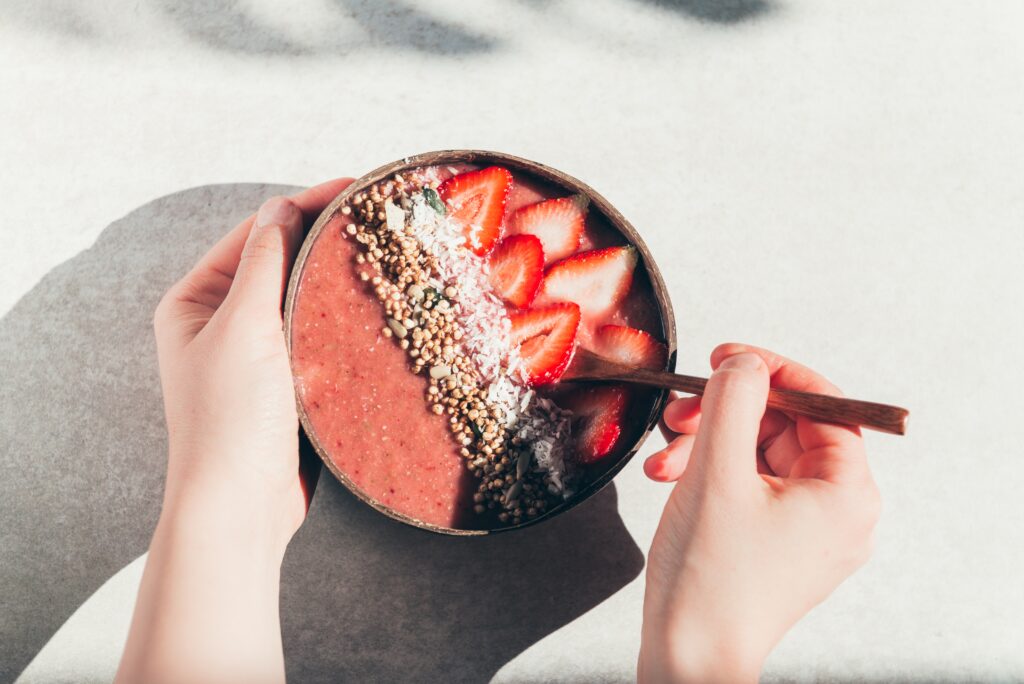
Day 5: Boost Your Energy
- Breakfast: Avocado toast, eggs poached, mixed berries, and whole-wheat bread.
- Lunch: A grilled turkey sandwich on whole grain bread with tomato, spinach and wholegrain. Also, a salad of raw vegetables.
- Snacks: Greek yogurt with honey, walnuts and walnuts.
- Dinner: Sauteed spinach with garlic and brown rice.
- Drinks: green tea or herbal tea
Eat in peace and quiet. Use all your senses to take in the colors, textures, and scents of food.
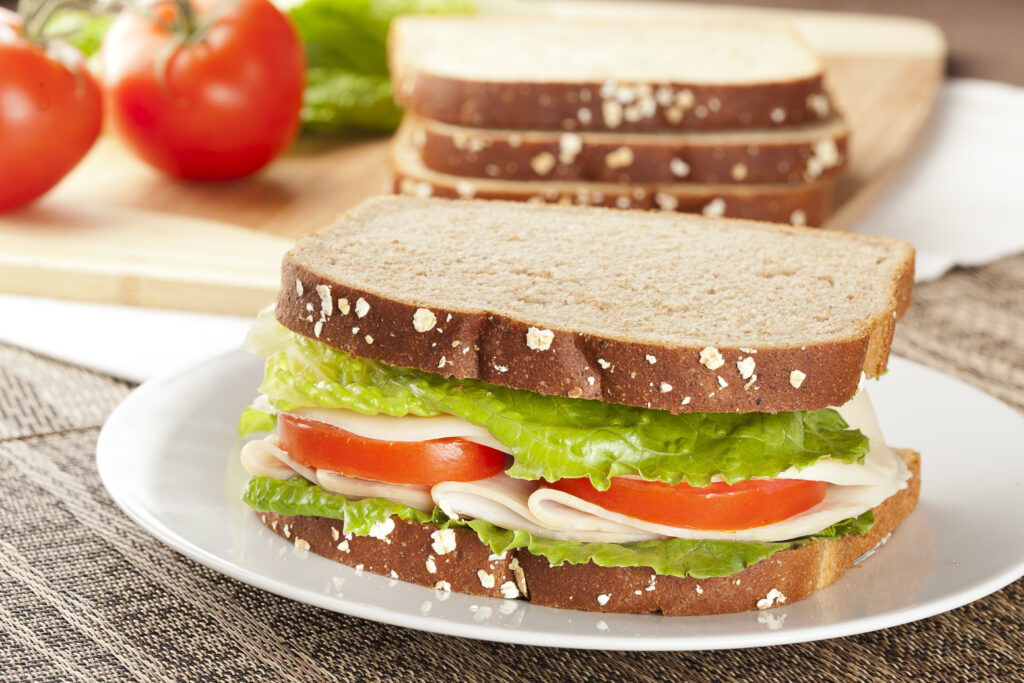
Day 6: Replenish and Restore
- Breakfast: Quinoa porridge, with almond milk and cinnamon.
- Lunch: Chickpea Salad with Spinach, Tomatoes, Cucumbers, Olive Oil, and Lemon Juice.
- Snack: A few almonds and a handful of mixed fruits.
- Dinner: Turkey burgers grilled with vegetables roasted (zucchini carrots and asparagus), and sweet potato mash.
- Drinks: herbal tea
Stop eating when you are satisfied. You can trust your body’s guidance to determine the correct portion size.
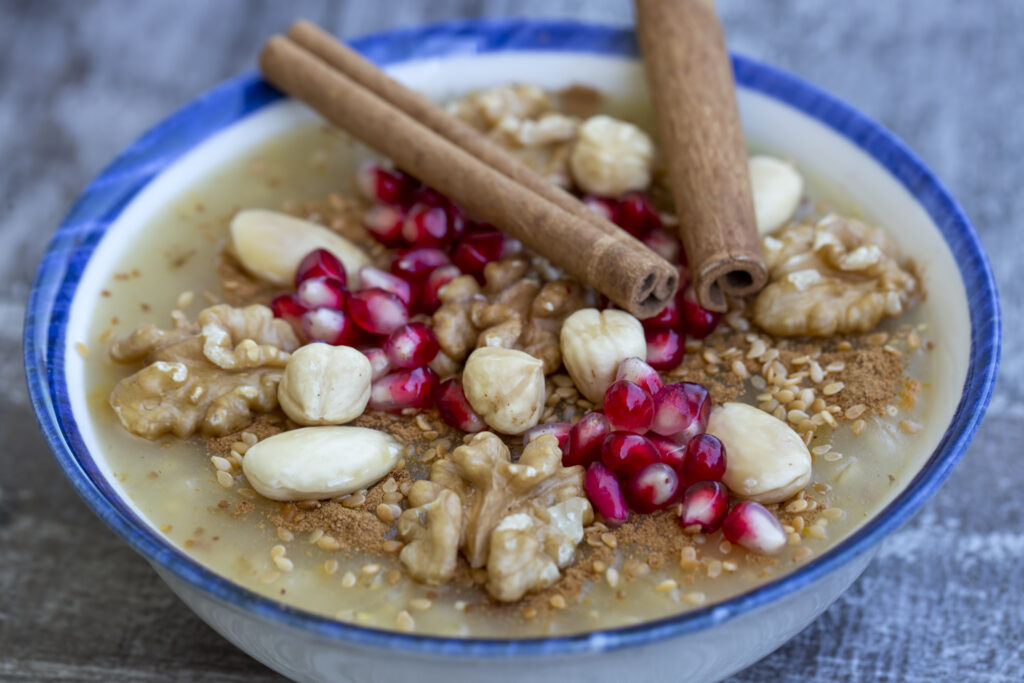
Day 7: Reflect and Celebrate
- Breakfast: A fresh fruit salad sprinkled with chia and drizzled with honey.
- Lunch: A Buddha bowl of quinoa with avocado, sweet potatoes roasted, kale and tahini.
- Snack: a handful of sunflower seed and an apple green.
- Dinner: Salmon grilled with green beans and Quinoa.
- Drinks: lemon water or herbal tea
Consider the following mindful eating tip: Reflect on your feelings and how you feel at the end of your week. Note any changes you notice in your mood, energy or physical health.

Soul Diet Tips for Success
- Meal Prep: Preparing meals ahead of time will ensure that you have always healthy choices available.
- Stay Flexible: The Soul Diet doesn’t focus on perfection but rather balance. If you slip up, don’t stress. Restart your diet with the next meal.
- Listen to Your Body: Mindfulness is the key to the Soul Diet. You should pay attention to the way different foods affect you – energetic, calm, satisfied, or bloated.
The soul diet is a practical way to encourage you to:
- Whole foods: Fruits, vegetables, proteins lean and whole grains are all good sources of energy for your body.
- Eat mindfully: Enjoy your food and slow down to savor every bite.
- Stabilize emotions :Select foods to stabilize emotions and reduce stress.
- Holistic practices: Include hydration, exercise, and relaxation in your daily schedule.
Scientific Backing: The Benefits of a Soul Diet
It is well-documented that a balanced diet rich in nutrients can have a positive impact on the body as well as the mind. A diet high in vegetables, fruits, grains and proteins has been shown to reduce chronic disease risk, enhance mood and improve mental clarity.
- Improved Health: Eating a nutrient dense diet can reduce inflammation and promote healthy digestion. It also helps balance blood sugar levels.
- Serotonin and blood sugar levels can be stabilized by a diet high in antioxidants and fiber.
- Brain health is improved by eating foods like omega-3 rich fish and leafy greens.
- Energy Boost: A balanced diet will help maintain blood sugar levels and provide you with energy all day long.

Incorporating the Soul Diet into Your Life
You can start the soul-diet by following these six simple steps:
- A balanced breakfast you need to start your day.
- Eat mindfully: Concentrate on your meal without being distracted and enjoy it.
- Keep hydrated: Stay refreshed by drinking plenty of water.
- Add a wide variety of fruits and vegetables in different colors to your plate. This will assure you that you are getting the right nutrients.
- Reduce Sugary Snacks and Processed Foods. These foods can negatively affect your mood and energy.
- Prioritize rest: As part of an overall balanced lifestyle, ensure adequate sleep and recuperation.
Personal Reflection: My Experience with the Soul Diet
Always, I believed that what we eat affects how we feel. It wasn’t till I adopted a more mindful and nutrient dense diet that I noticed a difference in energy levels, moods. After a week eating too much processed food, I felt sluggish. It didn’t take me long to recognize that my body needed a reboot.
As soon as I began to focus on eating whole foods, such as fruits, vegetables, meats that are lean, and healthy oils, I felt an immediate shift. My energy levels increased, I was more focused, and my overall health improved. My mood was more stable and no longer did I experience the afternoon crashes. The transformation I experienced was proof that eating a healthy diet affects your health not only physically but also mentally and emotionally.
The Connection Between Nutrition and Spiritual Well-Being
Learn how the food we consume can affect not just the physical condition of our bodies but also the emotional and spiritual states. Consider specific foods thought to improve the quality of your life, mental clarity and connection to the spiritual, while including practices like mindfulness eating and the importance of plant-based diets within religious traditions.
Rituals and Practices to Enhance the Soul Diet
Explore various practices and rituals of different cultures that encourage the concept of a “Soul Diet.” It could be as simple as meal preparation to help you meditate as well as the significance of being grateful when eating as well as how meals shared with others will foster connections and lift spirits. Think about incorporating modern-day wellness practices like yoga or meditation into your daily routines.

Conclusion
Soul diet is an holistic and mindful eating approach that has a positive impact on overall health. You can establish a connection between your food and the way you feel by choosing foods rich in nutrients that are good for both body and soul, practicing mindfulness eating and adopting a healthy lifestyle.
It’s easy for us to forget, as we go about our daily lives, that food is more than just fuel for your body. Food also serves as medicine for your soul. Adopting the soul diet principles will not only improve your physical well-being, but also your mental and emotional well-being.
You can start by incorporating these principles one at a time into your daily life. You’ll be rewarded in the end.
FAQS
1. What is the soul diet?
Soul diets are a way of eating which nourishes your mind and body through nutrient rich, mindful food choices.
2. How does the soul diet help balance my life?
By focusing on mindful eating and whole foods and maintaining a balance lifestyle, it promotes mental and physical clarity, as well as emotional stability.
3. Is the soul diet a weight loss plan?
The soul diet is not just about weight loss, although it may help with weight control. It also focuses on your overall health.
4. What foods should I focus on in the soul diet?
Soul diet emphasizes whole foods that are nutrient dense, such as fruits, vegetables and lean protein. Whole grains, healthy fats, and whole grains make up the soul diet.
5. Can the soul diet improve my mental health?
Research shows that eating a healthy diet with a variety of nutrients will improve your mood, help you reduce anxiety and enhance cognitive functions.
6. Do I need to follow strict rules on the soul diet?
The soul diet does not encourage strict rules or restrictions, but rather mindful eating. The soul diet is about conscious and nourishing choices.
7. How can I start the soul diet today?
Start by adding whole foods into your diet, practicing mindfulness, remaining hydrated and prioritizing self-care and rest.
8. Does the soul diet require expensive ingredients?
Not necessarily. You can follow the soul diet with whole foods like fruits, vegetables and grains that are affordable.
9. Can the soul diet help with energy levels?
The soul diet is a great way to maintain a stable blood sugar level and provide you with energy that lasts throughout the day.
10. How soon will I feel the effects of the soul diet?
After a few months of eating a healthy, balanced diet, many people report improvements in their mood, clarity, and energy.

